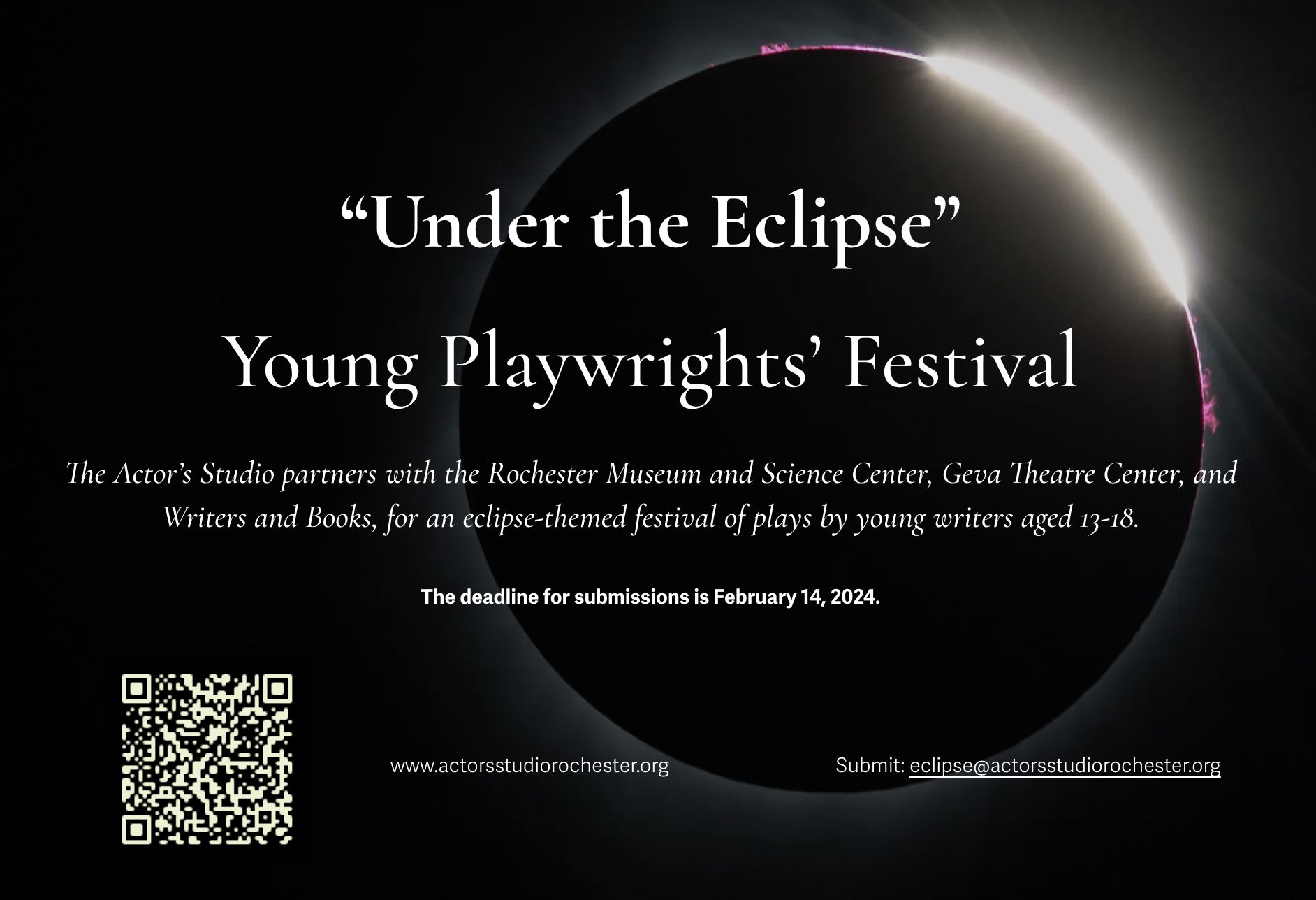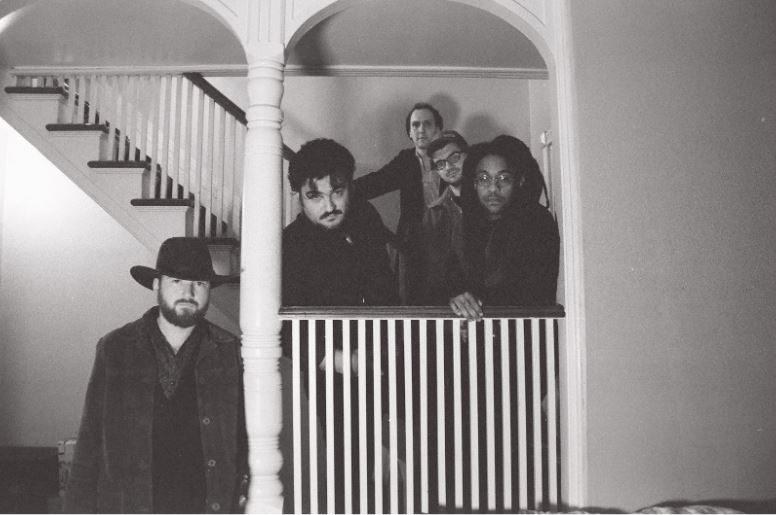
- This event has passed.
“Under the Eclipse” – Young Playwrights Festival
Event Navigation

The Actor’s Studio partners with the Rochester Museum and Science Center, Geva Theatre Center, and Writers and Books, for an eclipse-themed festival of plays by young writers aged 13-18.
On April 8th 2024 at 3:20pm, Rochester will experience its first full solar eclipse in nearly 100 years. The next time that Rochester will be in the path of totality will be in 2144.
Using this once-in-a-lifetime event as a writing prompt, short scripts will be curated by the Actor’s Studio for further development—five scripts will be chosen from the pool of submissions, read by professional actors literally under the eclipse and open to family, friends and the public. The readings will take place at Museum of Science during the “Roc the Eclipse” March 30 at 2pm.
Jean Ryon, who will spearhead the festival, is a director and teacher who has been a dramaturg for Geva for 25 years and managed the Regional and Young Playwrights Festival. Jean will be curating, dramaturgy, and directing.
Award-winning playwright and educator, Carter Lewis, will work with the five young playwrights to develop the scripts, and guide their revisions.
Carter is an Actor’s Studio Artist and is the former head of the Washington University playwrighting program—and a former playwright-in-Residence and literary manager at Geva. He is also a two-time nominee for the American Theatre Critics Award and his plays have been produced all over the nation for decades.
Professional actors will be chosen to rehearse the selected plays with our staff, directors, and playwrights, before script-in-hand readings take place at on March 30th at 2pm at the RMSCs Bausch Theatre—one week prior to the actual eclipse on April 8th.
The Actor’s Studio of Rochester is partnering with Geva, Writers and Books, and Rochester Museum and Science Center (RMSC) on this project. Working with the RMSC’s “ROC the Eclipse” event, this playwriting festival will help to spark our community to look up and out—and provide a literary lens to view this once in more than a century event.

